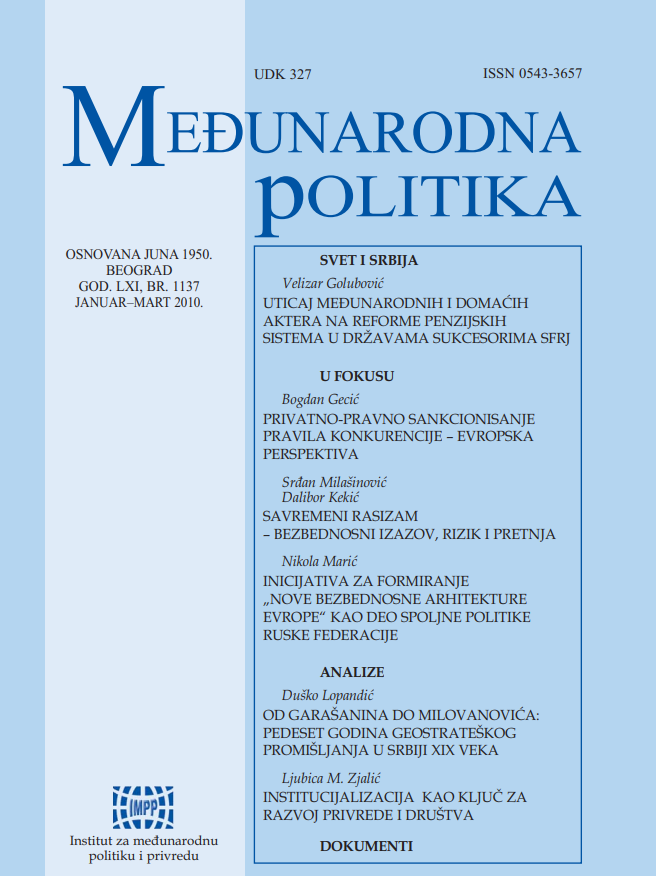Institucijalizacija kao ključ za razvoj privrede i društva
Institutionalisation as a Key for Development of Economy and Society
Author(s): Ljubica ZjalićSubject(s): Economic policy, Developing nations
Published by: Институт за међународну политику и привреду
Keywords: institutionalisation; transformation of society; formal and informal institutions; market; economic growth; economic development; employment; income distribution.
Summary/Abstract: The paper examines institutionalisation as the contribution to upgrading of both economic and social development. This implies a “public system of rules”, which defines agencies and positions with their rules and responsibilities, powers and immunities and the like. The distinction can be made between formal institutions, which determine the political system (government structure, civil rights, and administrative structure), economic structure (ownership rights, contracts) and informal institutions that determine informal norms of cultural values. The increase in the population welfare was the ultimate concern of development and hence, it was believed that economic growth would automatically ensure achievement of that goal. For a long time this had been the expression of a specific “obsession” with economic growth. Disillusionment came about when development theoreticians shifted the focus of their attention from economic growth to employment, income distribution and poverty issues. This confirms that without sound, legitimate institutions, based on knowledge and professionalism, it is not possible to attain progressive social changes. Employment growth is the most reliable indicator of development.
Journal: Међународнa пoлитика
- Issue Year: 61/2010
- Issue No: 1137
- Page Range: 84-104
- Page Count: 21
- Language: Serbian

